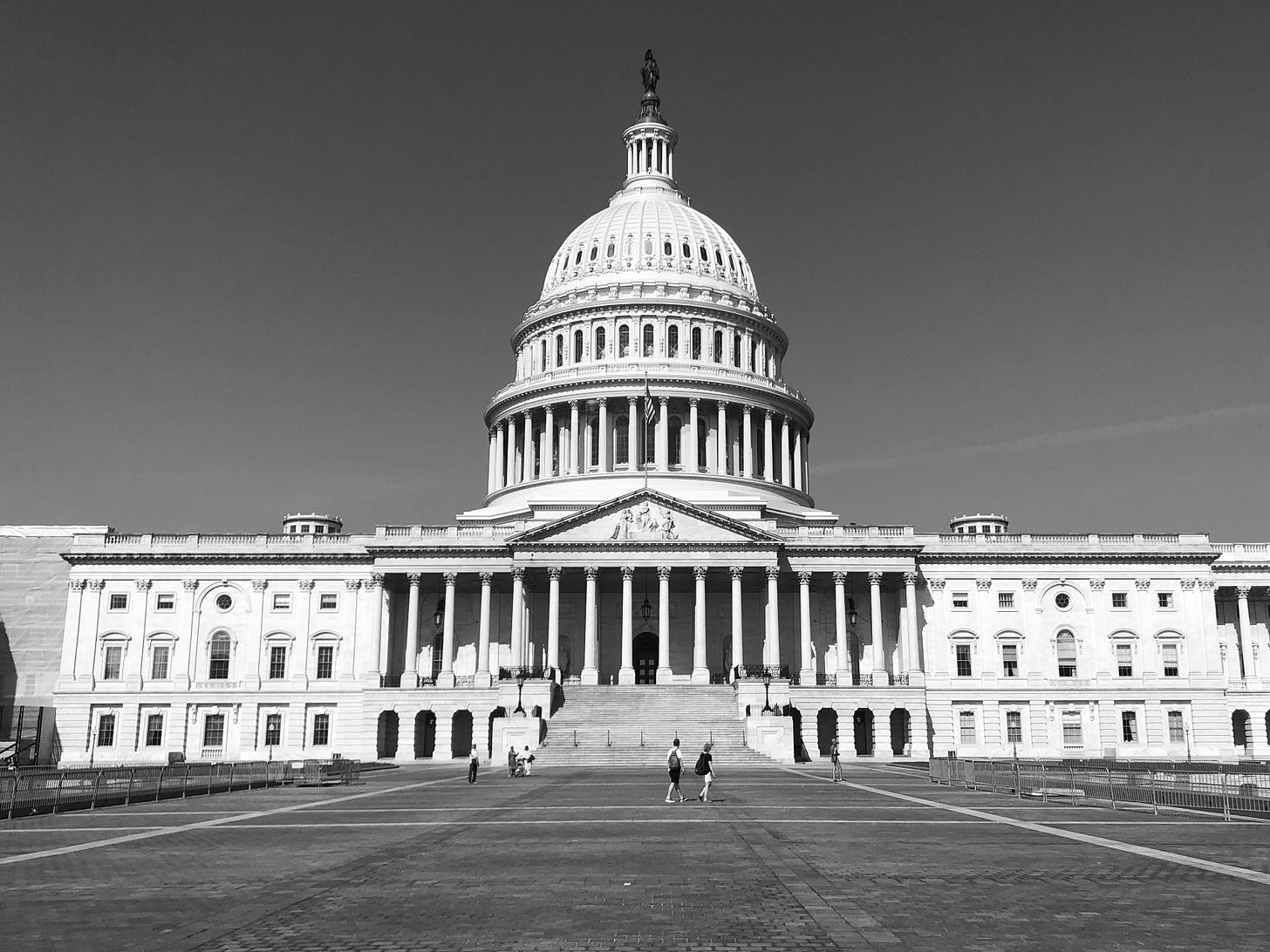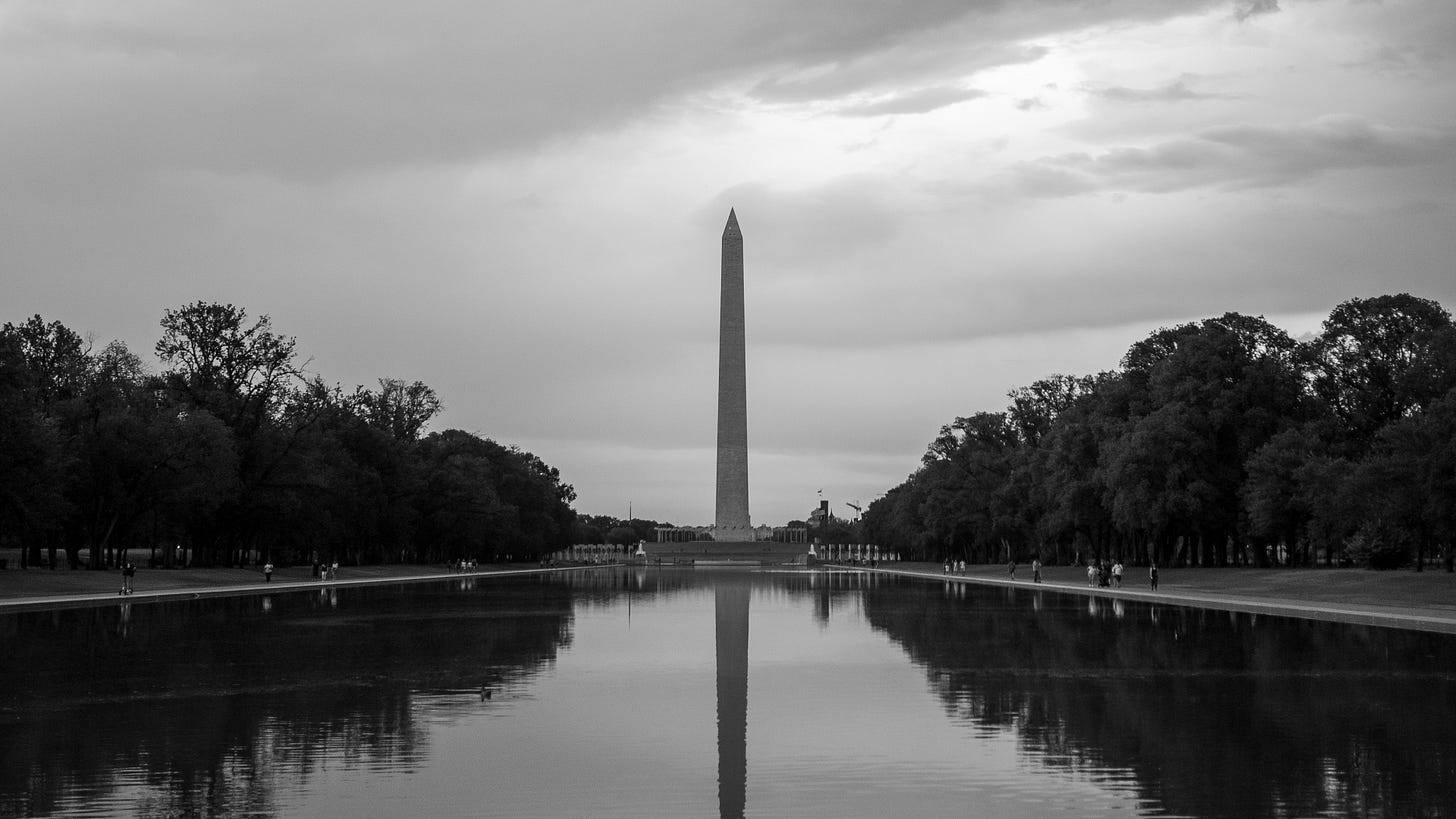That simmering dread about November
Whenever I mention a forthcoming move to NYC to friends and family, conversation inevitably turns to a common unease about the potential consequences of the next US presidential election.
This is the inaugural post of The Donkey Vote, a Substack I’ve started as an outlet for observations of US politics and the 2024 US presidential election. My family will temporarily relocate to New York City until May or June next year, and I’m excited and nervous about observing what could be a historically significant period for the United States.
With those nerves, there is also a little bit of dread about what could develop after the first Tuesday in November (and I’m not referring to the Melbourne Cup). A dread almost uniformly expressed by friends and family we’ve told about our plans to be in the United States for the next ten months or so.
It’s a simmering concern that we might be approaching a turning point for one of the world’s most powerful countries. It is a historically significant event that could irrevocably change the system of Western democracy – with the scope to serve as a trigger for genuine threats of outbreaks of violent conflicts.
The next US presidential election is scheduled for 5 November. It will be an unprecedented contest in many troubling ways.
As it stands, it will be a contest between the two oldest-ever candidates for President. This surpasses a record already held by Biden and Trump, which they first set in 2020. It will be the first presidential election where one of the major candidates is a convicted felon. Additionally, one of the candidates will contest the election while facing criminal charges for electoral interference and the mismanagement of classified documents - although the conservative-stacked Supreme Court might undermine those charges.
Trump also seeks to become the second one-term President to win re-election to the White House for a non-consecutive second term. Grover Cleveland is the only one to pull off that feat, so far.
It should be a slam-dunk election for the non-criminal candidate, but he is also facing major questions about his fitness – his more literal physical fitness – to take on the role of President for another four-year term.
The electoral strategy behind Biden’s candidacy is to position him as the safe, experienced, competent candidate. He’s not the charismatic, progressive candidate that gets soft Democratic voters to turn out and vote. He’s not Barack Obama. Biden has adopted an ambitious stance on growing America’s green energy capabilities, but a very conservative stance on the Israel-Palestine conflict. It’s a calculated balance that contributes to political ennui within much of the Democratic base.
Biden’s most important attribute is that he’s not Donald Trump. But to succeed, Biden must demonstrate that he is actually the safe, experienced, competent candidate – and his poor performance during the first presidential debate significantly challenged that assumption. It led the New York Times to call for Biden to withdraw from the election.
The dread that so many people have raised with me is entirely independent of the election outcome. It’s not specifically a dread about a future Donald Trump presidency – although there is definite fear about what that would mean. It’s a dread for an America that is about to expose itself as deeply fractured, increasingly more extreme in its politics, and dread about a potentially historic turning point for one of the world’s superpowers that we all sense is coming.
Some of my friends have watched Alex Garland’s film Civil War. While the events of that film are highly unlikely to play out in the real world, the probability is not zero. That’s where some of the dread manifests. An actual Civil War is improbable. But… maybe? It has happened before in the United States…
That thought sits in the back of my mind and that of many others.
“At least you should be pretty safe in New York City, being such a strong Democratic base” is a very common comment from friends, families, and colleagues. “Just avoid Washington DC. And the South.”
If Donald Trump wins, the concern becomes about what that will entail for an American democracy that is already deeply struggling. Trump – and his supporters - have become increasingly extreme since his first presidential term. If Donald Trump wins, there will also be a real flow of impact for the rest of the world, including having a profound influence over the politics of an ally like Australia.
If Joe Biden wins, the consequences could be much more dramatic for the United States. The January 6 capitol insurrection is a clear example of what is within the range of possibilities. Four years of increasingly extreme right-wing politics suggests the intensity of the response to a Trump defeat could exceed the events of January 6.
We could also expect more right-wing controlled states to become increasingly isolationist in their policies, with more radical and extreme measures being introduced by state legislatures and governors in response to the perceived ‘wokeness’ of a Biden presidency.
Crucially, a Biden victory will never amount to the silencing of Donald Trump. He’s not some Voldemort-type villain that can be vanquished into some in-between world, never to assert influence ever again. Quite the opposite, a defeated Trump has the potential to become a much more troubling figure as a persecuted victim who manages to command the support of nearly half the country - with a strong bias towards those who own all the guns. And that’s despite conduct - or maybe even because of it - that would normally disqualify a candidate from public office ten times over.
Whatever happens, there will be a story to tell, and I want to seize the opportunity to tell part of that story from within the United States.
So this is the first post of The Donkey Vote, which I’ve launched to be my outlet for documenting and analysing the events of the next period in American history. I want to try to capture what this underlying dread feels like for those living in the United States - and how it influences daily life.
I’ll continue to post to my other Substack – Tempests and Terawatts – which will remain focused on developments in climate change and energy markets and policy—that other looming catastrophe.



